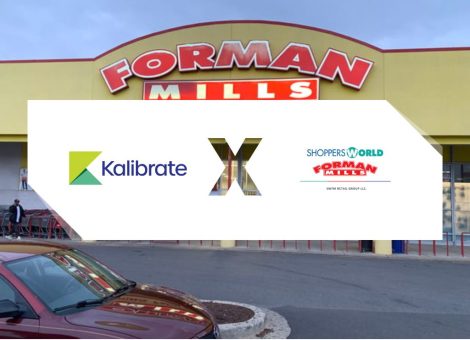Meet Robert, Kalibrate's Regional VP of Sales
What’s your role at Kalibrate?
I am Robert Matson, Regional VP of Sales for the retail location intelligence division for Kalibrate. Primarily focused on the West Coast of the US, I have been in location intelligence space for 10 years and have spent the last three and a half years with Kalibrate.
How does your role help the team succeed in its projects.
My role at its core it to be curious – because we can’t add significant value for our clients if we don’t have a strong foundational understanding of the challenges they’re facing on a day to day basis. It’s really about relentless curiosity about the state of a client’s business, their short and long term goals, the hurdles that have slowed or stopped growth historically. If I can develop that strong relationship with a client before we’ve even begun an engagement, that’s going to set up our team for success as they develop and deploy that solution. And, most importantly, set our clients up for success as they implement that into their process to grow.
What is your approach to building long-term, trusted relationships with clients?
I’ll sound like a broken record but curiosity is key, but enthusiasm and confidence are incredibly important as well. At this stage of my career, I’ve helped hundreds of brands execute on their growth strategy.
Communicating and pulling from that experience can often allow somebody I’m speaking with to just exhale and, and relax a little bit, knowing that we have encountered the same challenges that they’re facing and helped clients overcome those challenges successfully.
Intertwined with that though is a level of honesty and transparency; that’s critical. Everybody wants to have the answer to every question instantly pulled from their memory banks, but sometimes the answer is just, I don’t know’.
Humans are intuitive. We can instantly tell when somebody’s answering a question just for the sake of answering. So when that can turn into a collaboration of ‘let’s work together to find that answer for you’, that’s when a relationship can really thrive.
What type of problems are the clients you work with trying to solve?
There’s never been a more complex environment to try to grow a consumer facing business than where we are right now. The shift that the retail and restaurant industries have had to make both in general over the past decade, but certainly in our post-pandemic world, has been to meet customers where they are.
It’s generally leading to an easier purchasing relationship and sometimes an improvement in the path to purchase for these companies. But it adds a lot of new facets to account for when you’re trying to grow a brand. One specific and obvious example is the increase in off-premises sales in the restaurant industry. The Covid pandemic created this kind of instant need for brands to be able to deliver their food to consumers, even though they had relied on dining rooms and drive-throughs to drive their revenue for decades. That means there’s an entirely new lens that we need to view market planning and site selection. The formula for strong dine-in revenue is, is almost never going to be the same as the formula for strong off-premises revenue.
Restaurant brands that want to grow effectively and profitably have to have tools that are both nimble enough to keep up with those ongoing shifts in the delivery model and sophisticated enough to cut through the noise, and the data to provide actionable and reliable direction for those market planning decisions.
Nobody wants to become the Blockbuster of the restaurant industry. They must be willing to continually update and correct their expectations based on what consumers are telling them if they want to keep winning.
How do you see the future of location intelligence evolving and what role do you think it will play in shaping business strategies?
Any answer to this question that doesn’t address the elephant in the room is going be, in my opinion, a somewhat incomplete answer. I think the advancements of AI technology are going to be absolutely central to how location intelligence and market planning analytics can grow over the next three to five years.
And honestly, three to five years might be too long of a timeline when we’re talking about AI these days. AI is not new in the location intelligence space. We’ve been using machine learning to guide and support our solutions for our clients for decades. What is new are the capabilities of these large language models and generative AI. I think the possibilities for our industry are pretty endless as long as AI is incorporated ethically and extremely carefully.
Never say never, but it’s highly unlikely that the human element of site selection is ever going to be replaced by AI or automation. But there’s a massive amount of efficiency to be gained through thoughtful application of these AI driven platforms and modeling solutions.
With all that, it’s an incredibly exciting time to be in location intelligence for a lot of reasons. But AI advancement has me particularly pumped about where Kalibrate is going and where our industry is going from here.
Read more articles about:
Location intelligenceSubscribe and get the latest updates
You may unsubscribe from our mailing list at any time. To understand how and why we process your data, please see our Privacy & Cookies Policy
Meet the Kalibrate Team
Location intelligence
Forman Mills accelerates growth with the Kalibrate Location Intelligence platform
The value apparel and home goods retailer selects Kalibrate to to support its national expansion strategy.

Location intelligence
The Kalibrate news round-up: November 2025
In this monthly feature, we look across the industry and mainstream news to uncover stories of note that we think are...

